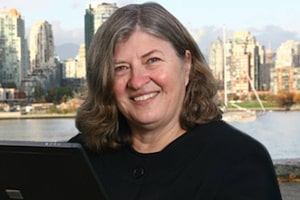
Next year’s 6.35-per-cent increase will work out to $72 a year for the median condo in Vancouver, $168 a year for the median single-family house, and $312 for the median business.JONATHAN HAYWARD/The Canadian Press
The 2022 budget approved by Vancouver’s city council this week will usher in the fourth consecutive higher-than-inflation increase to the local property tax over the course of Mayor Kennedy Stewart’s term.
Mr. Stewart says he will be proud to campaign on this record in next year’s election, even as his opponents argue that the hikes are excessive and unsustainable.
“Budget 2022 is a direct response to the challenges of COVID-19 and charts a bold path forward with long-term, dedicated funding to respond to the climate emergency that has ravaged our region,” Mr. Stewart said in a statement, referring to the past year’s extreme heat and flooding.
Council approved the budget during a meeting on Tuesday. It includes a property tax increase of 6.35 per cent for the year, which brings the total increase over the past four years to 25 percentage points. The budget also includes a new, $9-million annual and continuing climate fund. This, Mr. Stewart said, will pay for electric vehicle chargers, transit infrastructure, building retrofits and walking and cycling improvements.
Five green-left councillors voted with the mayor to pass the budget. They say they believe city residents will appreciate the extra money the new spending plan allocates for climate change, housing efforts and safety services. The budget also includes hefty funding increases requested by police and fire services, as well as a number of smaller increases for a variety of things, including libraries, translation services at city hall and special measures related to Indigenous initiatives.
“In the last election, I got asked a lot, ‘What are you going to do to address homelessness, climate change, the opioid crisis?’ That’s what I want to be able to answer for,” said OneCity councillor Christine Boyle, who supported the mayor on Tuesday.
Vancouver municipalities struggle to set 2022 budgets due to ‘school tax’ imposed by province
B.C. Ombudsperson calls for change to municipal property sales from unpaid taxes
Members of the minority group of five centre-right councillors who voted against the budget – four of whom previously belonged to the Non-Partisan Association – say they believe people will be looking for a new council next fall that can get back to focusing on basic services.
“It’s incumbent on a new council to do a core review of the services we are delivering,” said independent Councillor Lisa Dominato, who tried unsuccessfully on Tuesday to rally support for keeping the tax increase to five per cent. Her proposal would have allowed new spending only on police, fire services, park rangers and street cleaning.
Next year’s 6.35-per-cent increase will work out to $72 a year for the median condo in Vancouver, $168 a year for the median single-family house, and $312 for the median business. City taxes typically account for half or slightly less than half of a resident’s property tax bill.
Months ago, Mr. Stewart said he wanted to stick to an increase of no more than five per cent. But worries about safety in the city made keeping to that number politically difficult.
Faced with vocal public concern about rising disorder, window smashing and violent random assaults in the city, the green-left coalition voted in favour of the full $325-million operating budget requested by the police board, up from the $316-million approved last year. (OneCity’s Christine Boyle and COPE’s Jean Swanson opposed the increase in separate, itemized votes before the final general vote.)
The new budget also had to cover a surprise extra $3-million the city has to pay as a result of an arbitrated wage increase in its police contract.
The opposition councillors argued throughout the day that the tax increases over the past four years far outstrip any gains people have made in their income and will drive some homeowners out of the city. They blamed the increases on a tendency for the city to spend on services beyond its core responsibilities – especially housing, which used to be covered strictly by the federal and provincial governments.
“We should be spending in alignment with the priorities of residents,” said independent councillor Sarah Kirby-Yung.
Whether that argument will prevail in the upcoming election campaign may depend on whether voters see the value in how the city spends the additional tax revenue.
“It very much matters how the money is used,” said University of Victoria political science professor Rob Gillezeau.
If the public thinks the money is being wasted on frivolous or unproductive projects, an emphasis on the increase over four years could be damaging to Mr. Stewart’s chances in the election, Prof. Gillezeau said.
Barb Justason, principal at Justason Market Intelligence, said the polls her company has done over the years indicate that residents typically don’t rate property taxes high on their list of concerns. It’s usually housing affordability that tops the list.
And, she said, past surveys have indicated that renters – a group that accounts for more than half of Vancouver’s population – tend to see increases in services as a significant benefit to them, and that they don’t see a direct link between property taxes and their rents.
“Renters are going to be preoccupied with the benefits,” she said.
We have a weekly Western Canada newsletter written by our B.C. and Alberta bureau chiefs, providing a comprehensive package of the news you need to know about the region and its place in the issues facing Canada. Sign up today.
 Frances Bula
Frances Bula